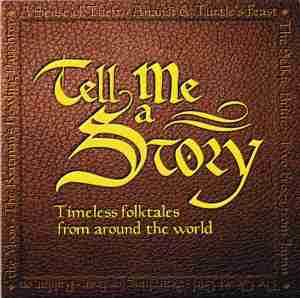
I remembered it was Halloween today when Darth Vader passed me in front of Berry College. As I thought about the costumes I wore as a kid, I recognized some similarities between Halloween costumes and Story that I wanted to pass on to you.
1. Costumes reflect on you. A costume says something about you, good or bad. A good one fits who you are. A bad story doesn't fit you or your brand. It doesn't match up with the values you project as an individual or a business. A bad story reflects poorly on you.
2. Costumes say you just want something. A pirate and a princess at the door indicates kids want candy. A poorly chosen or poorly told story gives your customer the same idea -- you just want something from them, and you are not that interested in getting to know them as people. You just want what they have. This is the exact opposite of an axiom we taught our kids, "People are more important than things." Don't confuse the two with a poor story.
3. Costumes represent your level of planning and/or interest. Take a good look at the older trick-or-treaters at your house this year. Their costumes often tell how much time and effort went into its creation. A memorable costume reflects planning, just like a memorable story does. Telling a effective story for business reflects thought about its message, emotion and audience.
4. Costumes reflect you. At the end of the evening, the best costume you saw today will stand out in your mind. Its creativity or execution will push it beyond average into memorable. An effective story stays with the listener, because it is compelling. It's not just another vignette told to get a laugh or a sale. It has a purpose that is in keeping with who you are, and it develops your relationship with your client.
5. Costumes hide who you really are. Small children use the plastic masks with the elastic around their head to hold it on. They're able to slide it up easily to see better or to show you who they really are. Easy enough. The large latex masks are different; they conceal the wearer's face completely, so you can't see who they are. Your use of poor stories can hide who you are to your customers, and that's dangerous for business. To the listener, it comes across as disinterested or worse yet, dishonest. Stories should enhance who you are, not hide you.
6. Costumes inhibit communication. Often when children wear masks, the mask makes it difficult for the candy-passer-outer to understand them. Fortunately, on Halloween, you still know what they want. It's not that easy for your clients. If you choose the wrong story at the wrong time, you might actually get in the way of good communication, and that's not easy to rebuild.
7. Costumes don't help you stand out from the crowd. I expect to see a number of Thor's trick-or-treating tonight; I saw the costumes on sale at Wal-Mart and Walgreens alike. It is true, however, that once you've seen one store-bought Thor costume, you've seen them all. Poorly chosen stories can effect people the same way -- heard one, heard them all. That's why it is so important to tell YOUR stories, not stories you've heard or read somewhere else. Tell your story, not someone else's.
Which of these apply to you? Leave a comment and join our community!


